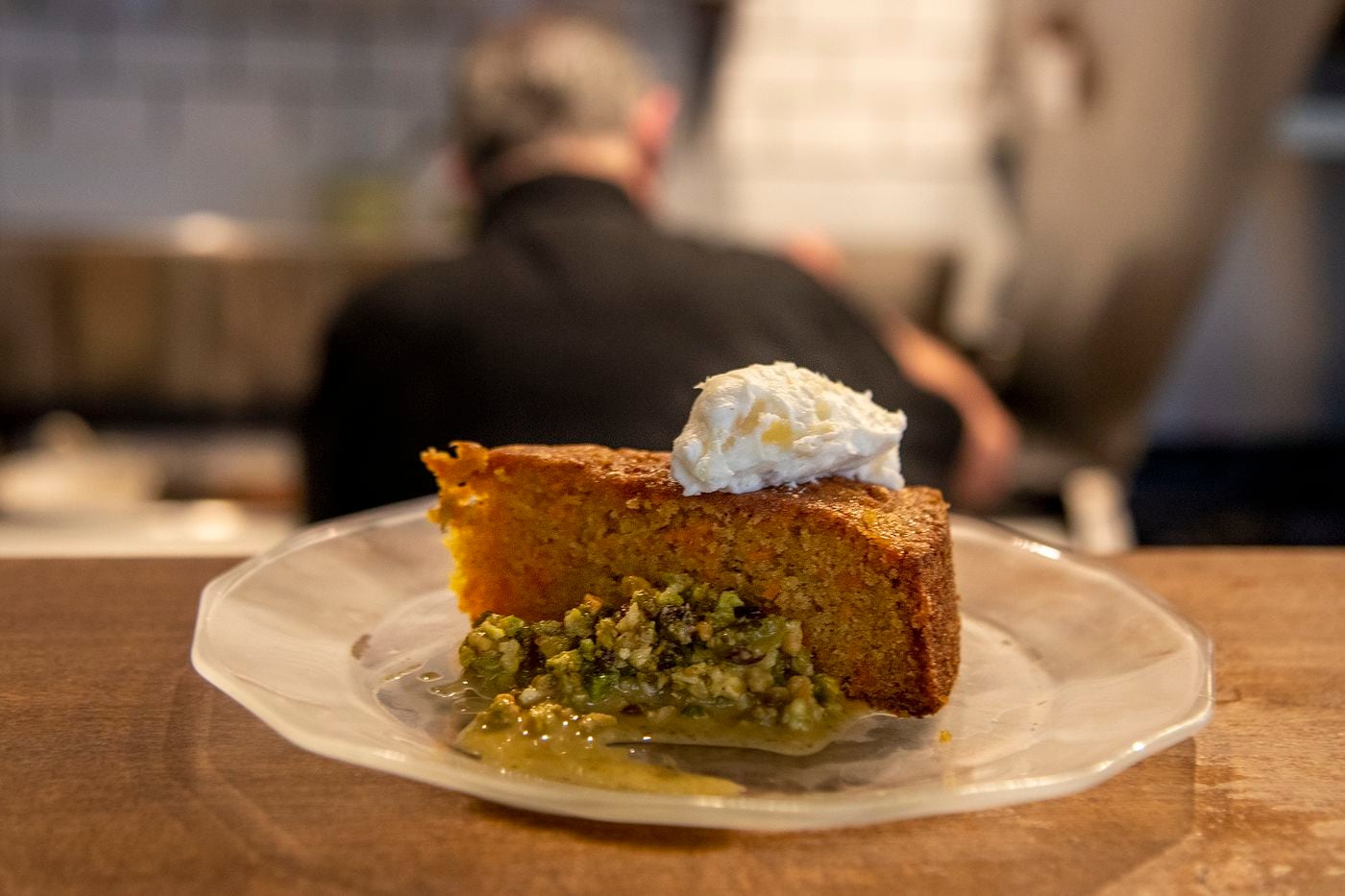Chef Alan Lichtenstein of The Little Hen is a first-time restaurant owner — at age 68
by Michael Klein, Posted: May 14, 2021 - Original article here on The Inquirer
At 68, an age when knees, shoulders, and fingers don’t bend quite as they used to amid the demands of a bustling kitchen, here comes chef Alan Lichtenstein, opening his first restaurant.
And he’s doing it for the same reason that hundreds of other, much younger chefs do.
Lichtenstein took over The Little Hen, the intimate French BYOB in downtown Haddonfield, in early May. He started there in 2020 as owner Mike Stollenwerk transformed The Little Hen into a French market selling provisions and sandwiches while continuing Two Fish, the nearby seafood restaurant he runs with Felice Leibowitz.
“We’re not retail people,” said Stollenwerk. “We decided to stick to what we’re good at, and Alan wanted to run [The Little Hen] as a restaurant.” Two Fish, which Stollenwerk had run all along, continues.
What Lichtenstein is particularly good at is stick-to-itiveness. His LinkedIn bio says it all: “Many years experience and I stay [at] the same job for a long time.”Lichtenstein spent 30 years at his previous job, chef de cuisine at the Rose Tattoo, a cafe-restaurant just north of Logan Square in Philadelphia.
His career tracks the 1970s restaurant renaissance in Philadelphia. He started as a student at George Washington High in Northeast Philadelphia, delivering pizzas for Piccolo’s, then an extremely popular shop on Bustleton Avenue known for its steak in a pouch.
“One day, the old [pizza] man hands me two spatulas and says, ‘Take that pizza out of the oven, and I did,’” Lichtenstein said. He worked in the kitchen after graduation in 1970, then attended Pennsylvania State University in Montgomery County for two years and one year at State College before going back to Piccolo’s, this time as a man.
When boredom set in, he took SEPTA into Center City. “I was going to buy a pair of shoes and hitchhike to Florida,” he said. “I walked past the Commissary at 1710 Sansom and they had a [help wanted] sign in the window. I filled out an application and got the job.”
The Commissary, which opened in 1977, was the cafeteria offshoot of Steve Poses’ trailblazing Frog nearby. Lichtenstein started at the bottom — in the basement prep kitchen, chopping parsley with three other people. One cook taught him how to made terrines and pâtés. “One day, he got drunk and didn’t come in, and my very first soup was carrot,” he said. “The only criticism [from Poses] was that it needed more sherry.”
Poses didn’t recall that soup, specifically, but did praise his work ethic. “Alan’s passion was a key ingredient and will serve him well at this tender age,” Poses said, sharing pride that The Commissary “provided a ‘starter home’ for folks like Alan to connect their passion to others in the collective enterprise we call restaurants.”
After a few years, Lichtenstein moved on to the Yardley Inn. “I refused to wear a chef’s coat,” he said. “How could I? I still didn’t know what I was doing.” He started on salads, and when the next line cook left, he replaced him, and so on until he was executive chef after a year.
When the inn was sold, he returned to Piccolo’s and remained for 12 years, before jobs in South Jersey, at a caterer (Food for Thought) and a restaurant (The Wild Orchid).
In 1990, he crossed the bridge again to help run the kitchen for new owners Mike and Helene Weinberg at the Rose Tattoo, at 19th and Callowhill Streets, which grew into a date-night and business-lunch classic.
In a 2002, critic Craig LaBan described the Rose Tattoo as “a warren of lively, rambling rooms with giant bouquets of fresh flowers and the viny tendrils of nearly 300 exotic plants.
A wrought-iron arcade on the second floor encircles the bar below with a romantic balcony reminiscent of New Orleans. But there is so much chlorophyll and oxygen charging the rooms that you might as well bring a plant mister when you come.” LaBan credited son Sean Weinberg’s fare as “vibrant, creative, and carefully cooked.”

TOM GRALISH / STAFF PHOTOGRAPHER
Shortly after the Weinbergs sold it in 2019, Lichtenstein left, and a friend introduced him to Stollenwerk.
Stollenwerk, who is 23 years his junior, praised Lichtenstein’s skills and reliability. “He puts his heart into everything he does. And does everything very well and efficiently. He doesn’t seem like 68, when you think about it.” The sale, he said, “is a good opportunity for everyone.”
Lichtenstein changed The Little Hen’s menu only slightly since its dine-in days. “I’m not trying to knock people’s socks off,” Lichtenstein said. “I just want to keep it simple and elegant.” Steak frites. Duck. He takes a turn on Poses’ carrot cake recipe for dessert.
The difference for Lichtenstein nowadays are the stakes. He lives in Delran with his daughter, Lynda, and her husband and four children (with a fifth on the way), “and a cat and a bird.”
“Hopefully, I can make this work out and we can move into a nicer place for all of us,” Lichtenstein said. “I don’t have time to retire. I love cooking so much. I don’t mind being here — 12, 14 hours a day. On the other hand, I love going home and then playing with my grandkids. I held my 2-year-old grandson this morning before I left. This is why I’m doing this. I love my family.”

